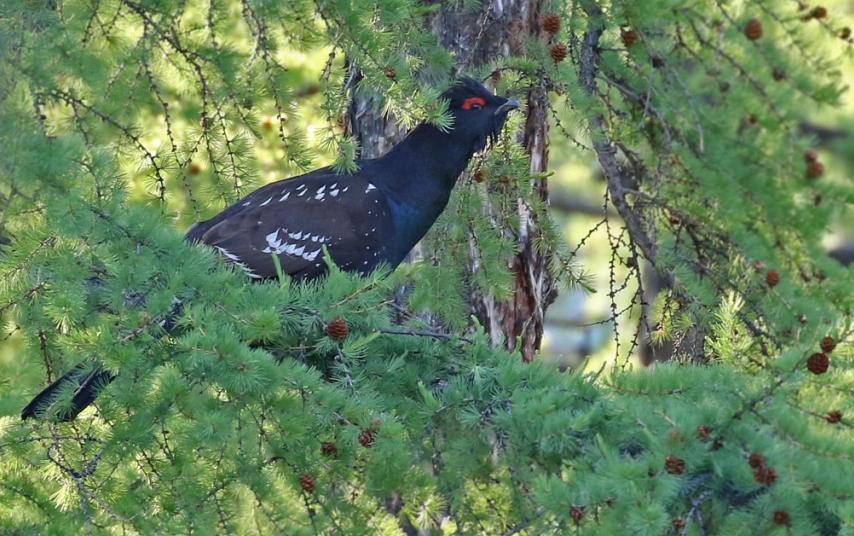
After years of planning we finally delivered our inaugural tour of Mongolia, with the best itinerary possible in a short timeframe. Overall, we did very well, hitting most of our intended targets in the dry and windy conditions, highlighted by the superlative, 15 minute views of a nervously stationary male Black-billed Capercaillie, quickly followed by our first Chinese Grasshopper Warbler. Moving westwards, our first great saline lake was heaving with birds – Brown-cheeked Rail, Paddyfield and Pallas’s Grasshopper Warblers and ‘Mongolian’ Pallas’s Buntings before reaching the Khangai Mountains, a tour highlight, with singing Hodgson’s Bushchats, proper Pallas’s Buntings, ‘Khangai’ Rosy Finches, Altai Accentor, a surprise Black-throated Accentor and a splendid encounter with eight vocal Altai Snowcocks. Heading south into the fringes of the Gobi Desert, Pallas’s
Sandgrouse were common and conspicuous, truly wild Mute Swan, Saxual Sparrow, Henderson’s Ground-jay, Oriental Plover, Wallcreeper and Mongolia’s single breeding endemic, Kozlov’s Accentor were all enjoyed.
A special mention to the mammals observed on the tour too – four species each of both jerboa and groundsquirrel, Great Gerbil, Asian Wild Ass, Mongolian and Goitered Gazelles, Siberian Ibex, an inquisitive Sable and finishing with with Przewalski’s Horse.
After arriving into Genghis Khan International Airport, it soon become apparent just how this revered historic warrior still lives and breathes through Mongolian folklore, airports, monuments and even vodka brands! A brief walk around the hotel in the late morning by a few who didn’t need to catch up on some much- needed sleep after a weary Aeroflot flight recorded Azure Tit, Amur Falcon, Azure-winged Magpies, a Barred Warbler for Alan, and migrant Pallas’s Leaf Warblers. The tour proper started immediately after lunch, with the nearby pool providing us with a pleasant introduction to the water-birds we would become accustomed to over the next couple of weeks including breeding Whooper Swan, Demoiselle Crane and elegant White-winged Terns daintily picking prey from the water surface. The first birding site most birders visit is the willow and scrub along the
Tuul River, and we were no different. Bordering the southern edge of Ulaan Baatar, the sprawling, polluted capital of Mongolia, which contains nearly half of the population of the country – a mere 1.4 million people. We only need 20 minutes to clean-up on the targets, as we ended up finding two nests occupied by White-crowned Penduline-tits, several pairs of Azure Tit and a stunning singing male Long-tailed Rosefinch. An adult male Amur Falcon was circling over the city, while a surprise was a Hawfinch dropping down from the canopy to take a drink, oblivious to our presence just metres away made for an excellent start as we waited for the adventure to begin.
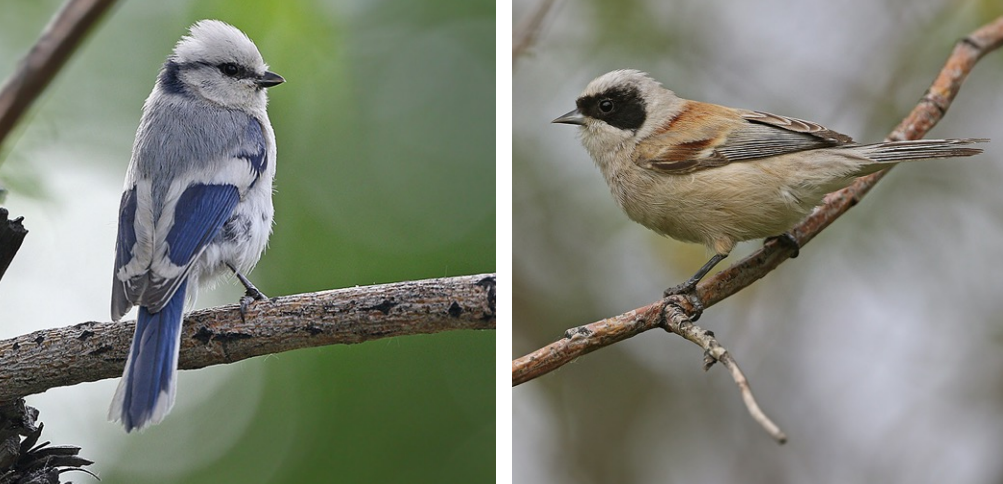
Up bright and early we made our way east, through Ulaan Baatar and into the open plains, which would become a very familiar sight over the course of the next two weeks, as would striking Mongolian Larks, Asian Shorttoed Lark, Horned Larks, aggressive Isabelline Wheatear that chase anything that dares venture into their territories and pairs of elegant Demoiselle Cranes. Our first stop was more mammal than bird as we enjoyed our first Mongolian Gerbils, followed by a surprise Mongolian Gazelle duo, wandering above the road. Gun Gaalat has long been known as a productive birding site, and the lake gave us our only Stejenger’s Scoter of the tour – seven of them, and a lone drake Falcated Duck. The main lake and marshy pools held thousands of birds, much of which is familiar to the European birders among us – Pied Avocet, Citrine Wagtails, single Temminck’s Stint, Garganey and more White-winged Terns with a handful of Whiskered Terns. We arrived in the heat of the day at our secluded camp right on the edge of an extensive area of Taiga forest, already setupfor us by our wonderful crew who always went on ahead to prepare things for us. The afternoon was spent walking (and walking…) in the searing heat with little to show for our efforts, Gerry got onto a very brief Blackbilled Capercaillie – the reason for our visit here – but it saw us before we saw it. The odd passerine appeared, starting with a pair of courting Brown Shrike at camp, followed by a stunning Siberian Rubythroat, then Taiga Flycatcher, Willow Tit, Tree Pipit, Daurian and Eurasian Redstart, and later on a fine Three-toed Woodpecker taking it out on a dead tree. Walking back in the evening we got an excited call from the driver, parked a long
way back who had found a female capercaillie, a mad dash ensued, though the bird didn’t hang around forever allowing most, but not all of us to see it, making for a frustrating end to the day, though it was only a female! The wind picked up in the evening, blowing a gale, with a Ural Owl heard distantly a couple of times.
Up and out early with the gale still howling away, though early on we picked up a male capercaillie flying through the canopy (!), and away. We carried on walking here-and-there, as optimism slowly drained until we looked to our side and in astonishment, there was a male Black-billed Capercaillie sat totally stationary in an attempt to conceal itself three metres up a conifer, but in full view! Excited whispers kept the bird alert, but not too alert as it dared not move, giving us outrageous views for 15 minutes, as it started looking from side-toside before finally disappearing into the forest, allowing us to finally let out all of the excitement! Just as we reached the vehicles to look at each others photos and celebrate, a speculative attempt at Chinese Grasshopper Warbler, as the habitat looked alright, revealed a bird already ready-and-waiting for us! Over the next while we
enjoyed repeated views as it sat up and sang, or crept about, mouse-like in front of us. One of the latest returning migrants of aspecies so difficult to see anywhere away from this area of Mongolia. We could return for breakfast, and as the gale was still blowing strong we decided to up camp early and head to a different area of forest. On the way we stopped at an area of scrub, still with the gale swirling all around us making birding not particularly enjoyable, or productive. But still, we plugged away, several Pine Bunting and Common Whitethroat appearing, a Monk Vulture just overhead peering down at us, and most pleasingly was a singing male Yellow-breasted Bunting that oddly preferred to sit on the ground in the densest bushes due to the wind before finally sitting up for an extended period, being blown left-and-right as he attempted to sing. As great as
it was to see such a beautiful bird, it’s also a rather sobering sighting as this bird was once positively abundant over much of north-east Asia but due to immense levels of trapping during migration it is now Critically Endangered and missing from most of its historical range – the tip of the iceberg of all these eastern migratory buntings that have all suffered catastrophic declines.
Our different area of forest, in the scenic Terelj area held a few more birds in general but it’s still amazing just how quiet the Taiga forest actually is here in Mongolia. An afternoon and pre-breakfast walk was in very pleasant, albeit windy conditions and yielded several new birds – Oriental Cuckoo, Yellow-browed Warbler, more Three-toed Woodpeckers, abundant Willow Tits and Pine Buntings, Dark-sided Flycatcher and great views of both Red-throated and Eye-browed Thrushes. In the deciduous valley bottom a pair of friendly Lesser Spotted Woodpecker even began feeding on the ground, Two-barred Leaf Warbler sang its heart out just in front of us, and Eurasian Redstart was a common sight, while a Mandarin Duck was found on the river.

It was now time to head west, arriving at Bayan Lake in the mid-afternoon for a superb afternoons birding. The reed-fringed pools were bursting with life both in and over the water, marshy edges and surrounding grasslands. Richard’s Pipits were a common sight, performing their display flight frequently overhead, Asian Short-toed Lark were also numerous, and would be for the duration of the tour while a pair of Mongolian Shorttoed Lark also appeared – a surprisingly scarce bird when you actually look for them, now it’s split from Greater. White-winged Terns dashed across, back-and-forth, a species we never tired of watching, Eastern Marsh Harriers were regularly flying by and three pairs of White-naped Crane, perhaps the world’s most
attractive crane, were active and vocal and several pairs of Swan Geese included at least two broods, while 9 brick-red Asian Dowitcher rested just across from us. Plenty of ducks also included a fine pair of Slavonian Grebe and several Red-crested Pochard. The reedbed provided the most excitement however, Reed Buntings, Oriental Reed and Paddyfield Warblers were common and conspicuous while several Pallas’s Grasshopper Warblers sang largely out of view, the Bearded Reedlings however, were both numerous and conspicuous. As the air started to cool, an attempt to see any of the calling Brown-cheeked Rails proved rather laughable with just Daniel and James getting views – something to look for in the morning!
The rails kept some of us up most of the night, as they screeched all night long near our marsh-side camp, making us more determined as we wandered through the marsh in our waders. We had amazing views of the previous days warblers, including song-fighting Pallas’s Grasshopper Warblers and numbers of Bearded Reedling once again. Finally, luck was on our side as we all had great views of Brown-cheeked Rail, just in time for a marsh-side breakfast. Checking the dry Achantherum grass away from the lake we soon located several singing male ‘Mongolian Buntings’, an undoubted and distinctive should-be-split race of Pallas’s Bunting, and is probably an endangered taxon, as it favours Manchurian grasslands that are now largely heavily degraded and reduced drastically in size. Having had our fill here we headed south to Bayankhongor, the last ‘city’ we would
see for over a week. A lunch-stop at Sangiin Dalai lake brought us next to a colony of Rock Sparrow, another Asian Dowitcher, our first Black Stork, and loads of song-flighting Blyth’s Pipit, a nice comparison to the mornings Richard’s Pipits. A total of 86 Monk Vulture en-route was noteworthy, with three groups sat around carcasses. The Soviet-styled hotel and Bayankhongor was nothing to shout about, but did make us look forward to heading back into the wilderness the following morning!
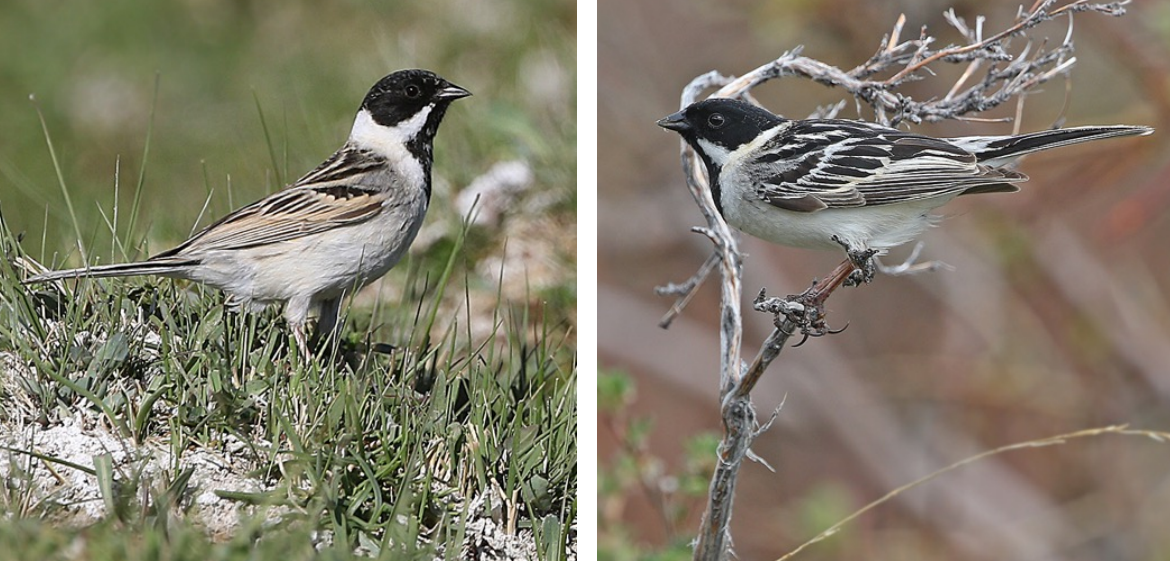
4wd packed-and-loaded we headed northwest, into the heart of the Khangai mountains. It was an exciting experience driving 350km along dirt roads the entire way. Stopping on the way for Pere David’s Snowfinch, a common bird along this route, Saker, Monk Vulture, Steppe Eagle and Upland Buzzards all appeared at some point, while a single lake held a pair of distant Black-throated Diver. Occasional stops to work out where we were going exactly were required so we jumped out and had occasional scans, picking up our first Brown Accentors and White-winged Snowfinch. Finally, in the mid-afternoon we arrived at our destination, Khukh Lake, situated at 2600m and in the middle of nowhere, it’s a grand sight with rolling hills surrounding the vast lake and wilderness. Keen to get out and make the most of our time here we had a brilliant hours birding, locating four of our six targets here in quick succession. First was a pair of Eversmann’s Redstart feeding among the grass and boulders, then a splendid male Hodgson’s Bushchat, the main reason for a visit here, was found singing from a lichen-covered boulder. Venturing a little higher we soon located a single Altai Accentor then a pair of ‘Khangai Rosy-finch’, a very distinctive, silvery-pink taxon from the Asian Rosy-finch complex and endemic to this mountain range.
Next morning, in gale-force conditions that would follow us for the next week unfortunately, we climbed up a hillside in search of Altai Snowcock, which we found relatively easily, though distantly as a pair were feeding and calling on a distant ridge. With this in the bag we continued along the lakeshore for the morning. A pair of Black-throated Diver were close inshore, in full breeding plumage. ‘The’ bushchat was still there, accompanied by a female, before we located a pair of Pallas’s Bunting, a nice comparison of this, the upland Siberian nominate taxon to the grassland birds a couple days previous. Further along the lakeshore we scoured the bushes in difficult conditions but pulled up an impressive list – breeding Dusky and Hume’s Leaf Warblers, two more Pallas’s Bunting pairs, another Eversmann’s Redstart, Güldenstädt’s Redstart, great views of Willow
Grouse flushed twice, a brief male Merlin overhead, but the biggest surprise was a Black-throated Accentor we ound – presumably the first record of the species in Mongolia away from its Altai breeding post. The afternoon was wet and windy, and another area we checked had no insect life and hence, no birds, just loads of Tarbagon.
Marmots! Those that went up to enjoy the spectacular views from the top of the hills enjoyed closer snowcocks, Altai Accentor and rosy-finches. A final morning along the lakeshore brought us back to the usual male bushchat, still busy defending his territory, with a second male nearby. Above them, at least eight Snowcock put on a magnificent performance, gradually making their way down the slopes to offer wonderful scope views as they flew back-and-forth, chasing each other, running up the hillsides, tails cocked and pumping, it was some sight amidst the amazing scenery. With a long, and relatively unknown drive south and into the northern fringes of the Gobi we headed off in the mid-morning. Birding on the way was quiet, bar the thousands of larks flushed from the roadside, yet more Pere David’s Snowfinch before finding our first of many Pallas’s
Sandgrouse. We arrived at the northern shore of Boon Tsaagan Lake in the heat of the afternoon. We abandoned our first camp-site as the mosquito’s were out in force. Mongolian and Pallas’s Gulls lined the shoreline, as White-winged Terns peppered the fringes and Kentish Plovers were abundant. Heading to the river-mouth we passed yet more groups of Sandgrouse and set-up camp. Spending the evening at the rivermouth, an adult Pallas’s Fish Eagle circled overhead as we sifted through the hoards of gulls and water-birds, failing to locate any Relict Gulls that might be around. Still, we enjoyed the large numbers of Swan Geese, yet more Asian Dowitchers, hundreds of Eurasian Spoonbill, 200 Caspian Tern, beautifully plumaged Pallas’s Gulls and a whole range of breeding water-birds. We were back at sunrise until the late morning, repeating the same
procedure with similar results. Additional species included Ferruginous Duck, pair of Red-necked Phalarope and even three Smew (including a drake). An immature Pallas’s Fish Eagle made us question where this species breeds – presumably on the distant crags given the complete lack of trees for hundreds of miles. As it turned out, the river-mouth is ‘owned’ by some thuggish looking local rich men, so we got to enjoy quite a shouting match between our crew and theirs for some time before things somehow calmed down! Heading east, we stopped for lunch by a waterhole, complete with our first Mongolian Finches. In the late afternoon we reached the much smaller Kholbooj Lake, which was surprisingly quiet. We did, of course, have more Asian Dowitchers (it’s obviously a bumper year for them), noisy Avocet yelping continuously overhead as their chicks fed on the
opposite shoreline and the odd Swan Goose dotted about. As the gulls were noticeable by their absence we opted to camp at the nearby Orog Lake, a huge, 40km long lake. At camp we noticed a Steppe Grey Shrike twice passing by with food – we would have to find its nest at some point during our stay here.
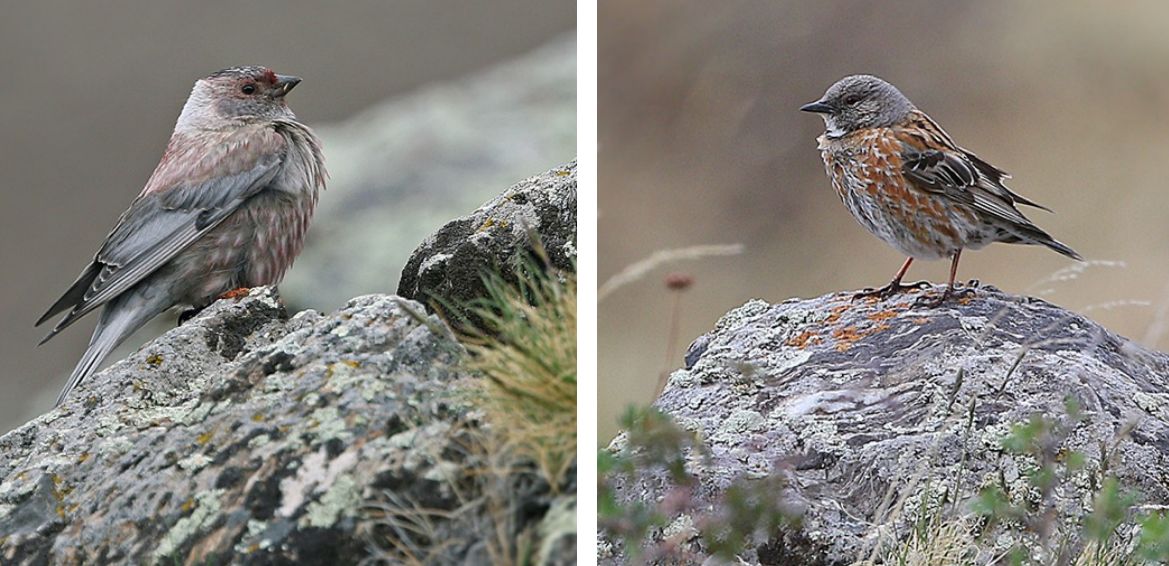
We had a day and a morning here, and covered much of this huge lake. Gulls were once again thin on the ground, though an odd 1st winter Black-headed Gull in suspended moult got the pulses at least vibrating for a time as we clutched straws. Mute Swans were surprisingly well numbered, we probably had in excess of 7, and maybe into double figures by the end. For the purists amongst us it was a lifer (including for James, at long last!), and a spectacular encounter was watching a pair fly off being chased by an aggressive Whooper Swan, which sent the male tumbling in the air. On the water itself, the usual variety of ducks surprisingly held little of note. Whiskered Tern was found among the throng of White-winged, and we enjoyed yet more Gull-billed and Caspian Terns, 56 pairs of Kentish Plover, and no shoreline would be complete without another Asian
Dowitcher! In the surrounding grassland one vehicle lucked out with an Asian Badger scuttling across the road in front of them, while the rest of us had Tolai Hare and Mongolian Gerbils! Along the south shore the rockier terrain held our only Little Owl, a couple of Long-legged Buzzards along with the usual suspects. Back at camp, our short walk found where the Steppe Grey Shrike had been taking its prey, with a minimum of six fledglings being accompanied by at least one of the parents, though the pair of Henderson’s Ground-jays, just metres away were superb, even for those that have seen them before.
The water-bird section of the tour was now over, as we headed south again, venturing into the Gobi. Our lunch stop was at ‘The White Cave’, the past home of Neanderthal’s, unfortunately we just had to make do with a roosting Eurasian Eagle Owl, Lesser Kestrels and some Pied Wheatear, and another pair of Ground-jay nearby. It was a long afternoons drive with few birds but stunning scenery, especially when the huge Khongoryn Els – sand dunes – came into view, which can reach as high as 300m. We finally had a night in a Yurt camp, and enjoyed both showers and dinner inside a building, and use up all available electrical points to charge up all batteries, phones and mp3 players! Some of us opted for a night-walk, which exceeded all expectations as we found four species of jerboa – singles of huge Balikun, Gobi, Five-toed Pygmy and several Thick-tailed Pygmy Jerboas at ultra close range (or even in the hand, or hat!). Later a couple of us found Large-eared Hedgehog curled up in the camp grounds.
Our targets were quickly thinning out in the desert so it was a short mornings birding as we visited a small colony of five breeding pairs of Saxual Sparrow close to the yurts then on to see a pair of Asian Desert Warbler feeding in the scraps of vegetation that call home. Moving on we ventured into a grazing area for mammals – 17 Asian Wild Ass and 36 Goitered Gazelle loitered around here, the stony terrain making it a safe haven for them here as hunters are unable to race after them here.
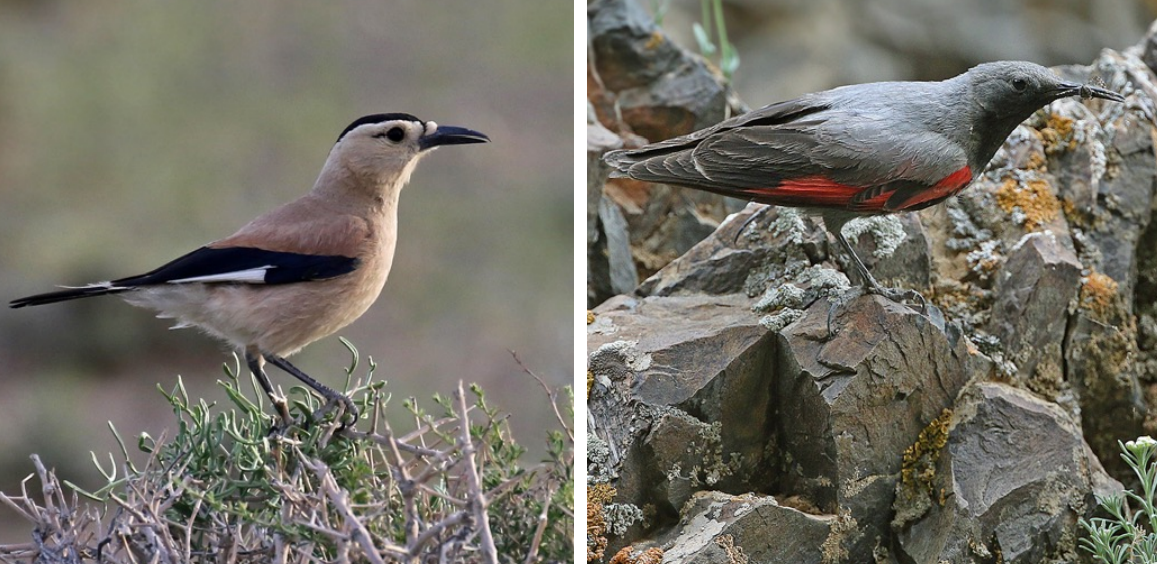
Yolyn Am – ‘The Valley of the Lammergeier’ is a narrow, craggy mountain range rising steeply out of the desert and our base for our final (YAY, I can hear from some of us!) nights camping. White-winged Snowfinches dropped down to the valley floor to welcome us, feeding on our lunch hand-outs, and true to form, Lammergeier’s floated low overhead. A Saker nest held three chicks before we visited a scenic gorge that contained a load of tourists – our first sighting of the tour! Kozlov’s Accentor, that bundle of colour, character and charisma, and also Mongolia’s only breeding endemic (that is the one thing it does have going for it) was soon sighted, feeding next to the path, our first of several. Alashan Ground Squirrel, a localised species was
found among the Pallas’s Pika and Mongolian Gerbil colonies. Further down we found Himalayan Beautiful Rosefinch, more snowfinches, Golden Eagle, Lammergeier and a group of Siberian Ibex wandering impossibly down a vertical cliff-face with impressive dexterity – while watching the male in the distance a Wallcreeper landed next to him, giving direction for a Wallcreeper on a distant rockface is not easy, fortunately, to save the straining we found another that decided to feed on a tiny rock right next to the path at eye-level, offering the best views any of us have had of this truly charismatic species.
A night-drive offered much promise but delivered so little, unless you have a liking for Red Foxes, of which we found nine! Back inside the gorge we enjoyed more accentors, Water and Blyth’s Pipit’s and, the birding must have been slow, as we managed to finally identify a Midday Gerbil (yellow vs dark claws!). Heading to a different valley we located a vocal Chukar and yet more Lammergeier before it was time to head out of the mountains and back into the flatlands. We visited a small apple grove to see a Long-eared Owl nest, that contained five healthy looking, large chicks. Amazingly, despite it being mid-June there were still migrants here – Siberian Chiffchaff and Pallas’s Warblers, presumably why the Daurian Shrike’s had made this place theirhome! The biggest bonus was a Daurian Starling, particularly for Denzil, a long-time bogey bird finally laid to rest.
Letting the midday heat cool down somewhat before we headed out to the steppe we finally found a handful of Oriental Plover, including a male that burst into its wonderful display, twisting high in the air before settling down just in front of us. We finished the day off with the monstrously large Great Gerbil, that took some of us a long time to locate due to James slightly over-emphasising the true size of this rather non-descript rodent!
A bird-free early morning as we took the short flight north from Dalanzahgad to Ulaan Baatar and checked into our hotel in time for some late morning birding in the garden. Amazingly, we found a Chinese Grasshopper Warbler – obviously a late migrant – in a willow. How times change, at the beginning of the tour we found several other migrants here and birds were conspicuously getting ready to breed but now it was all quiet, a single Azure Tit showed extremely well, and we located another pair of Lesser Spotted Woodpeckers, feeding young, and our only White-backed Woodpecker of the trip.
Our final birding session was spent at Khustain Nuruu National Park, one of three localities in Mongolia where the Przewalski’s Horse has been reintroduced. The only truly wild horse that survives today, and has never been domesticated, it was last sighted in the wild in 1966 before the reintroduction program began, with 320 now being found inside the park. We saw about 30 of them, and we told all about their plight, history and future intentions by a local PhD researcher. Bird-wise, we saw a few things; Golden Eagles swirling around once more, Meadow Bunting was new for the list but, most excitingly was our fourth ground-squirrel – the localised Daurian Ground-squirrel which we made a special effort to see amongst the numerous Long-tailed. Yes, the park isn’t too rich in birdlife! After a final fill of the larks, including the favourite Mongolian Lark it was time to
head back to Ulaan Baatar and toast to our success and no more camping!
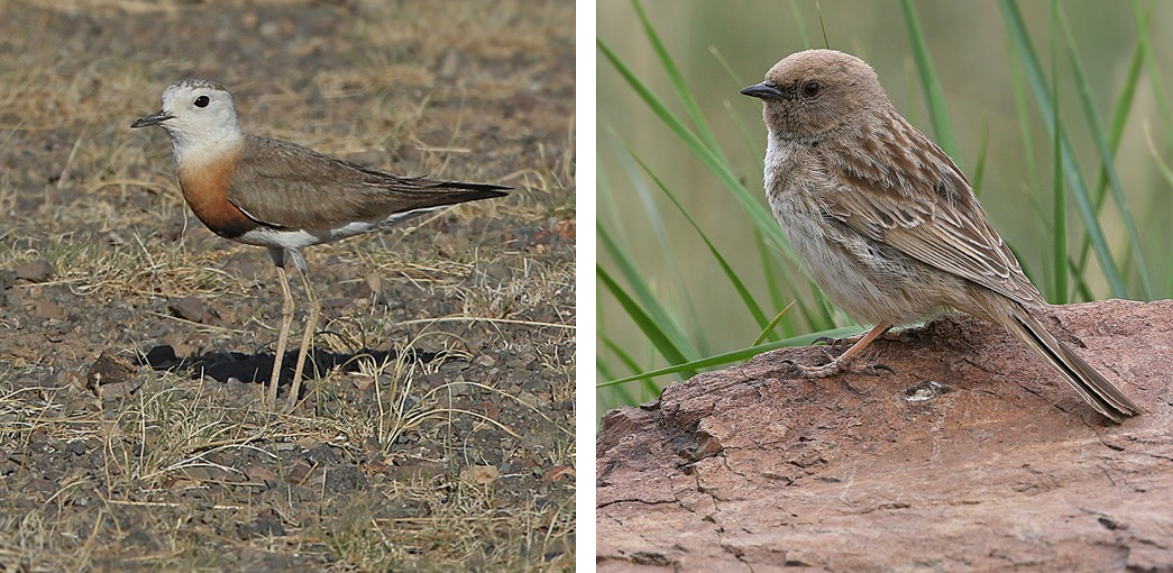
For information regarding our tours to Mongolia please click here. Alternatively please contact us via e-mail or phone +44 1332 516254 regarding organising a custom tour to Mongolia.
1 Black-billed Capercaillie
2 Altai Snowcock
3 Hodgson’s Bushchat
4 Henderson’s Ground-jay
5 Kozlov’s Accentor
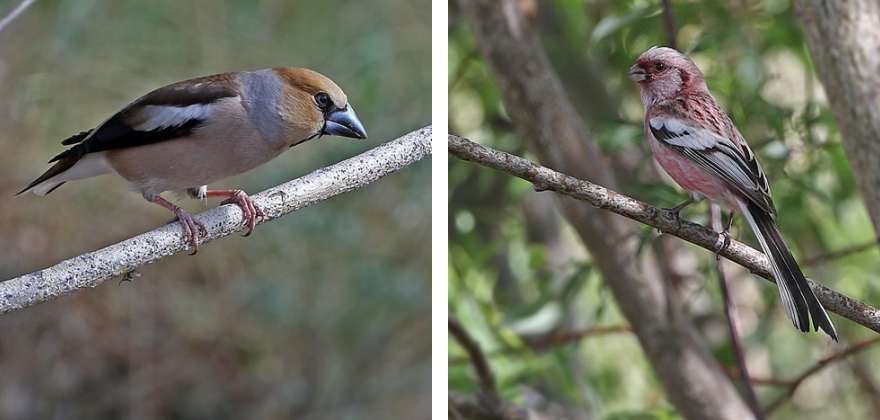

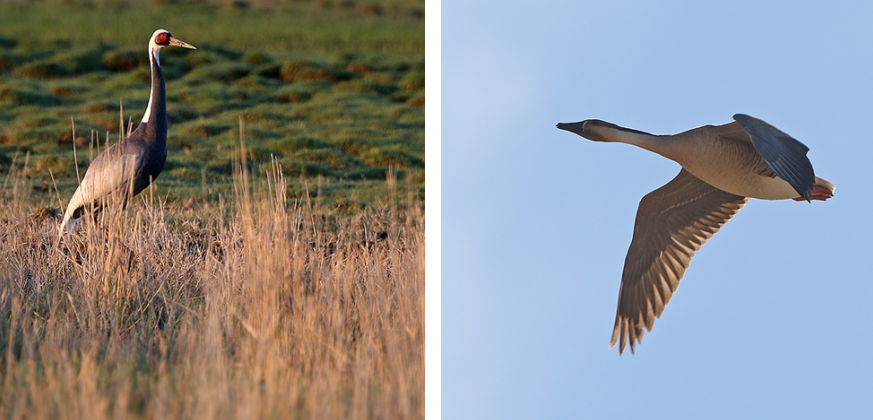
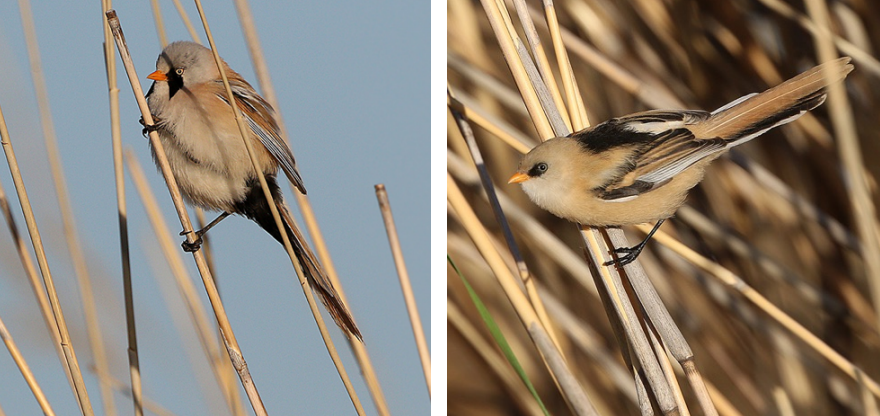
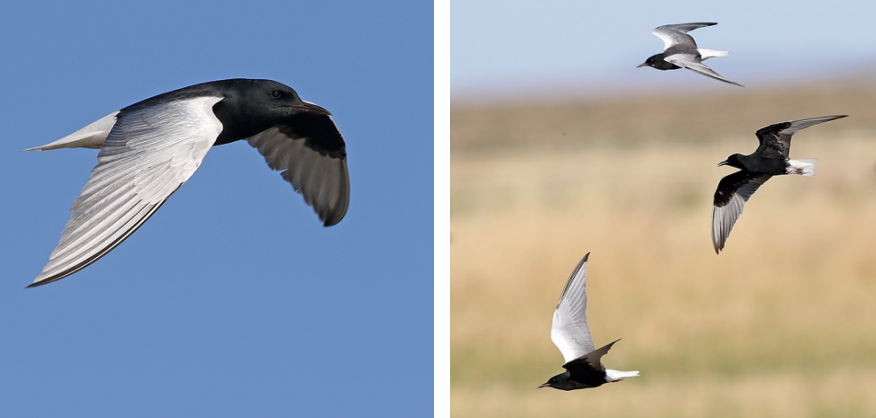

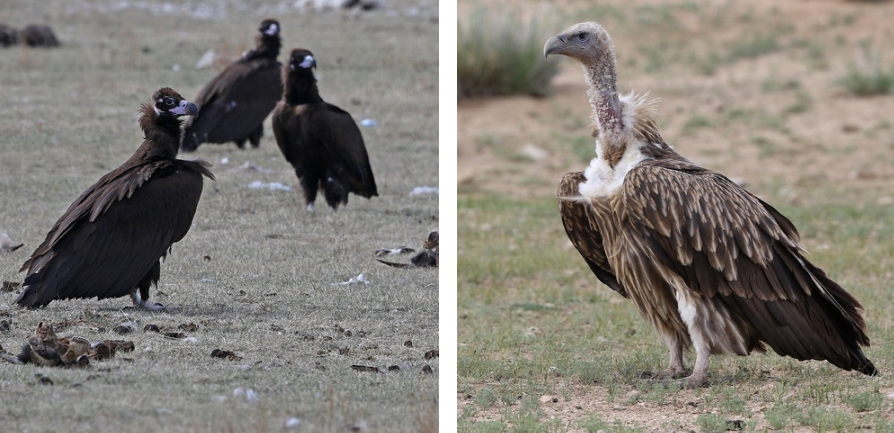
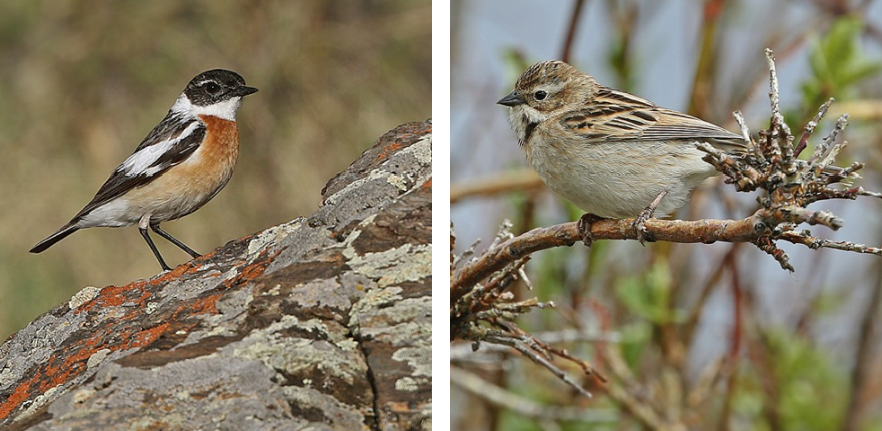
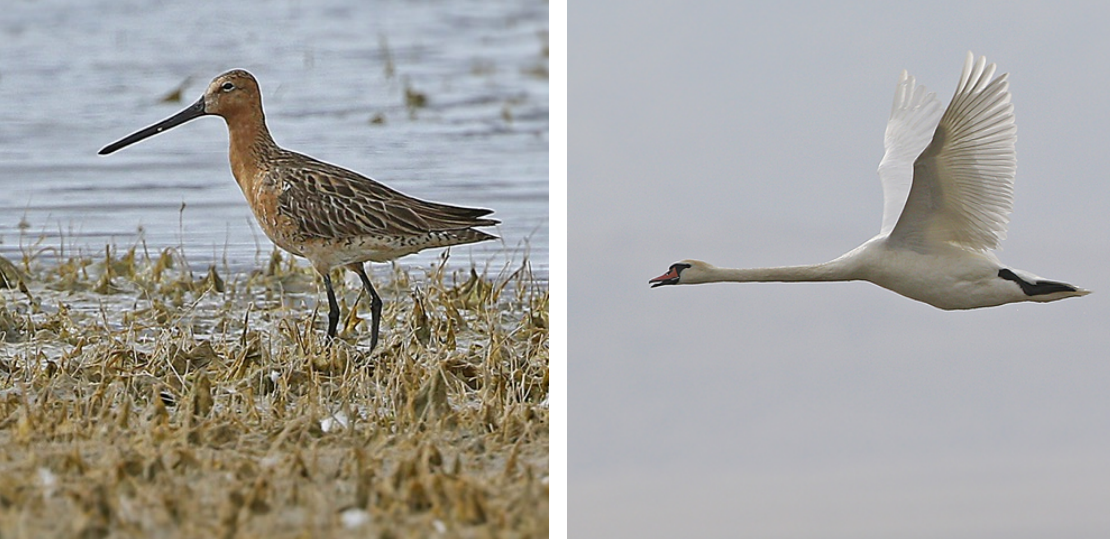


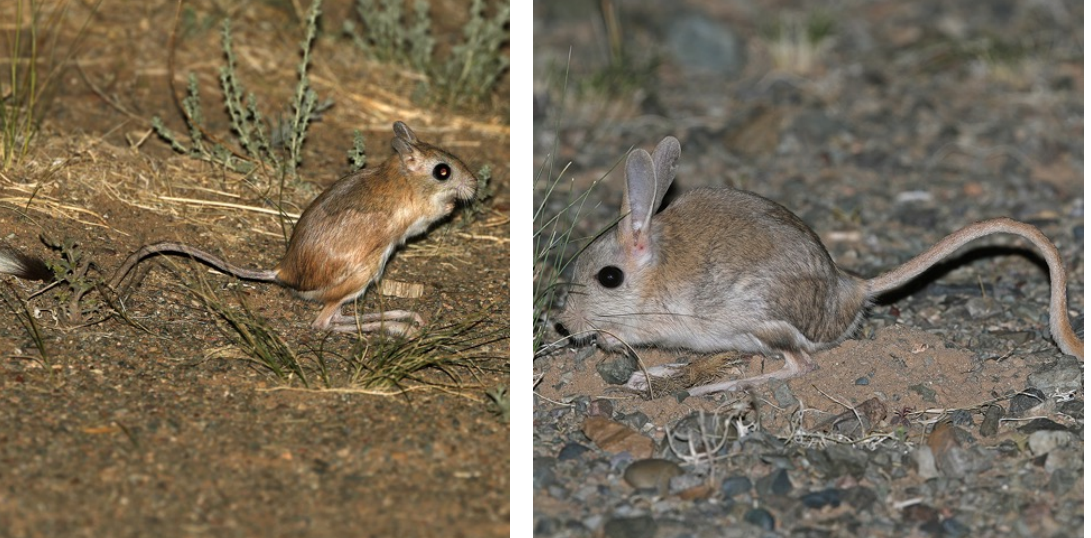

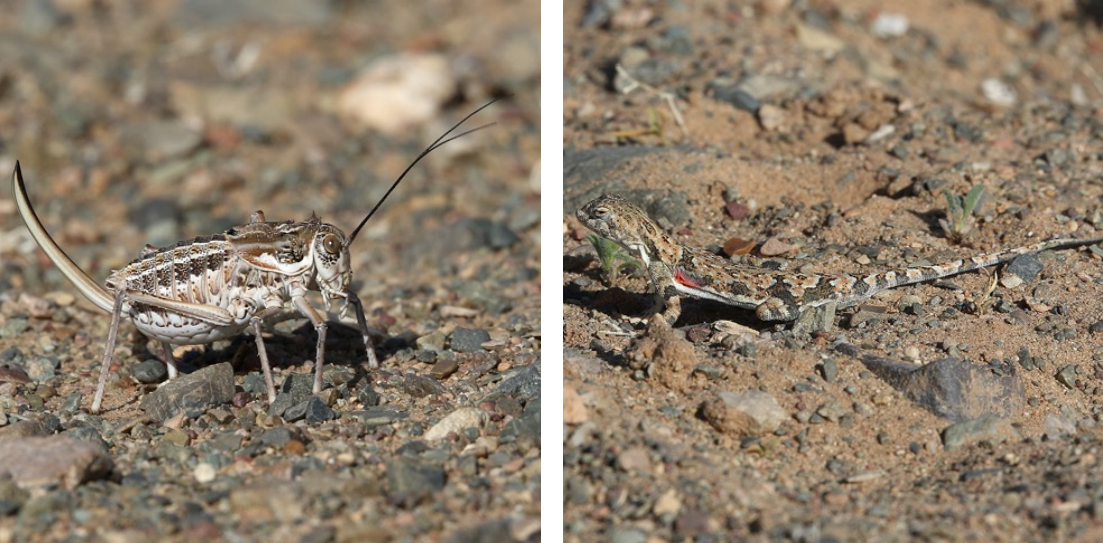
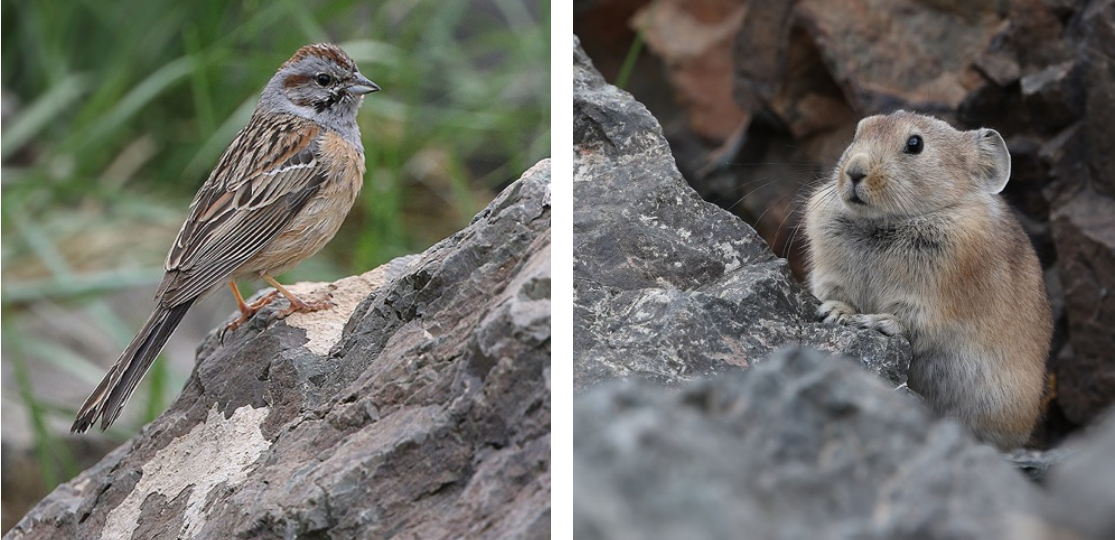
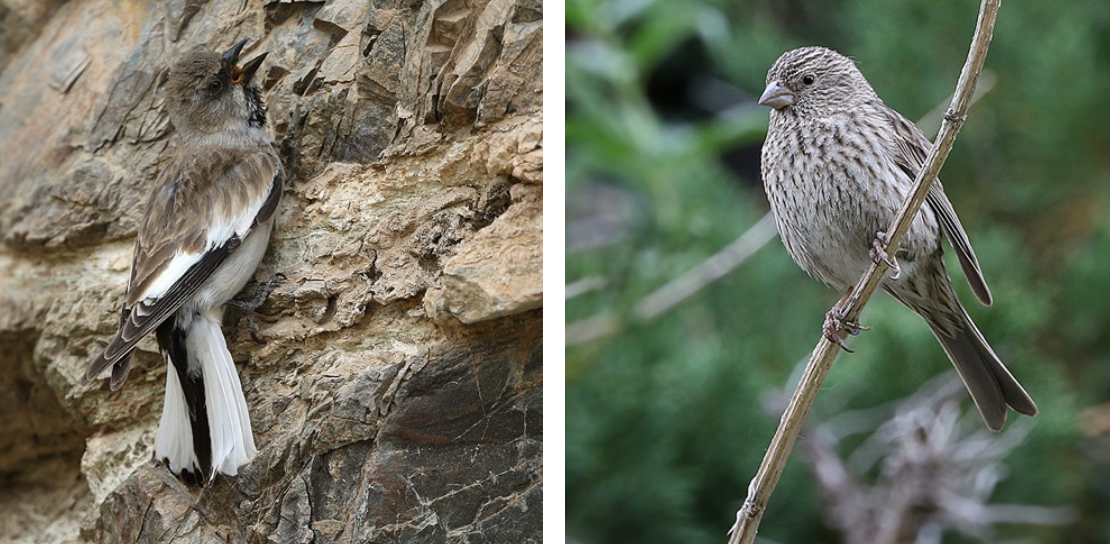
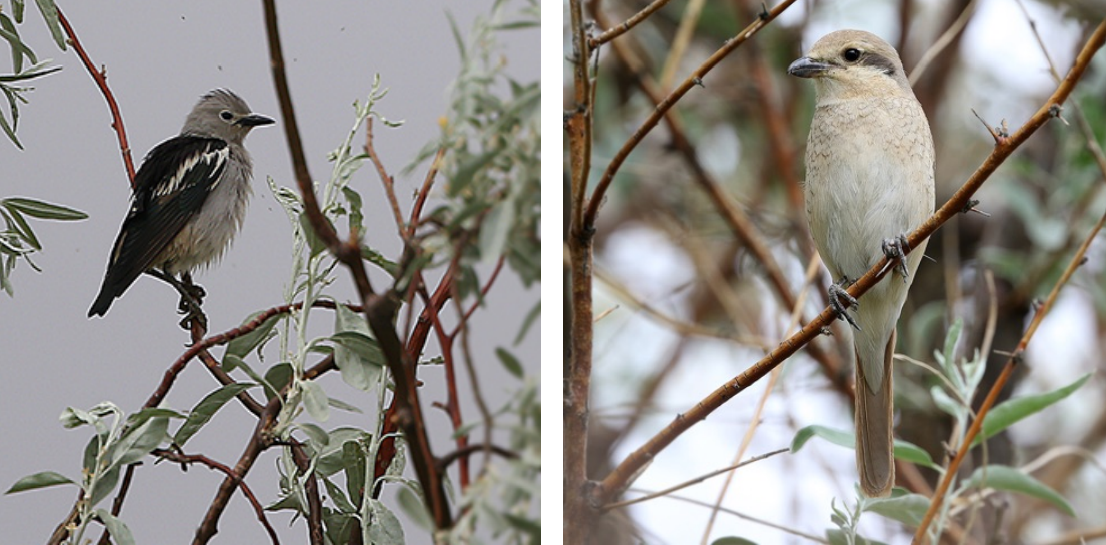
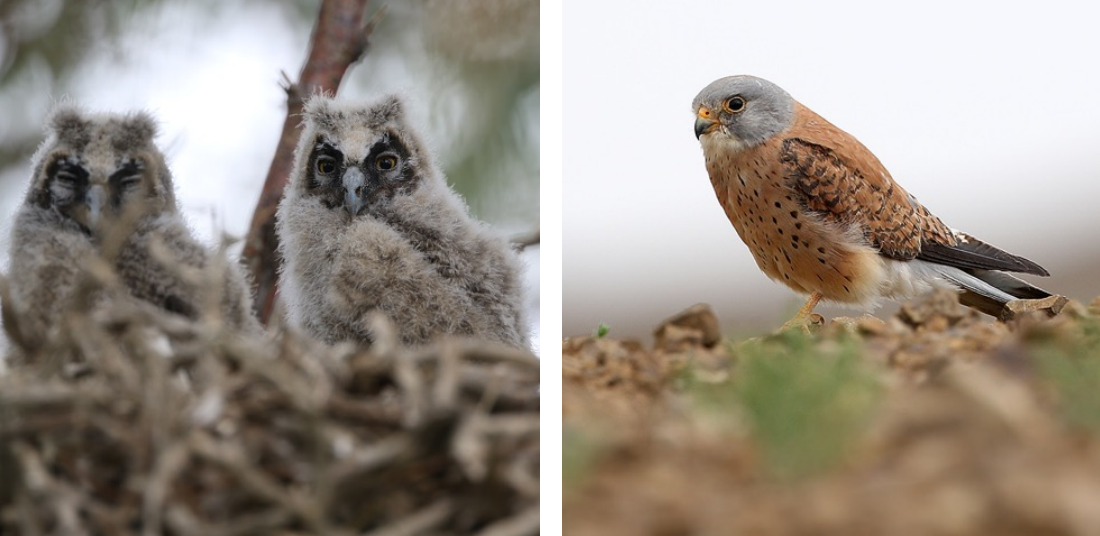
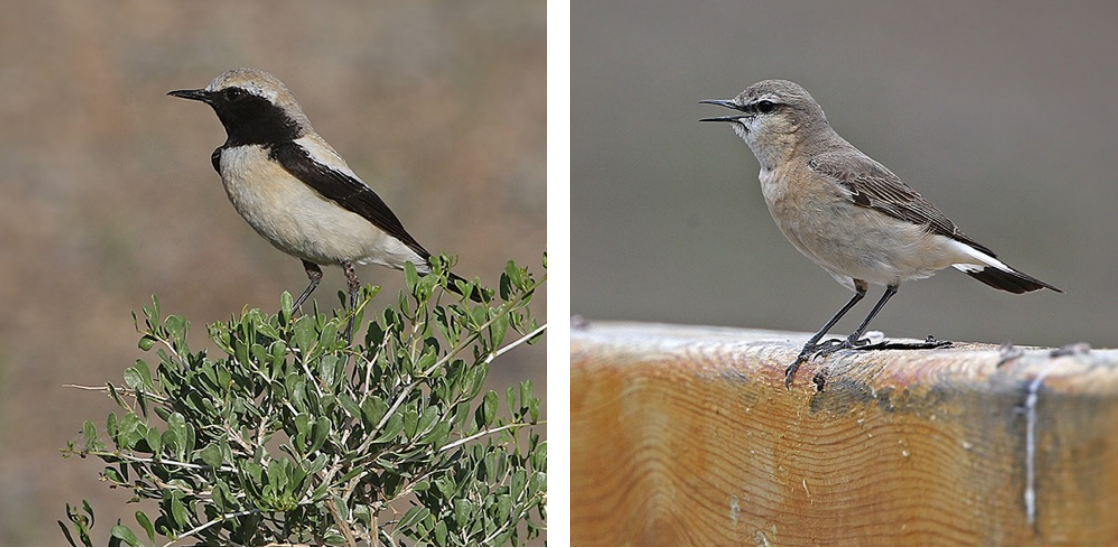
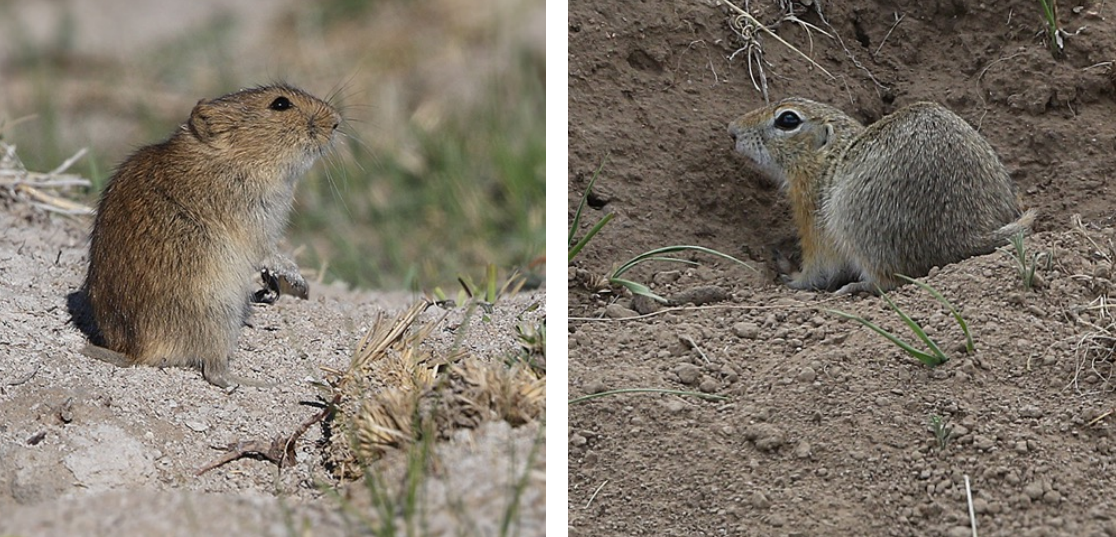
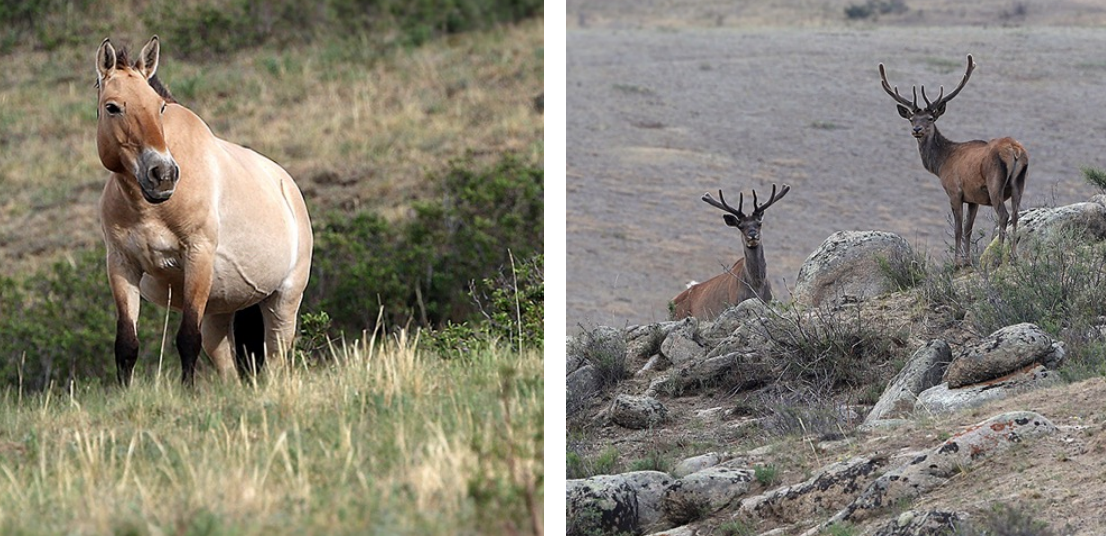
Bar-headed – Goose Anser indicus
Greylag Goose – Anser anser
Swan Goose – Anser cygnoides
Mute Swan – Cygnus olor
Whooper Swan – Cygnus cygnus
Common Shelduck – Tadorna tadorna
Ruddy Shelduck – Tadorna ferruginea
Gadwall – Anas strepera
Falcated – Duck Anas falcata
Eurasian – Wigeon Anas penelope
Mallard – Anas platyrhynchos
Northern Shoveler – Anas clypeata
Northern Pintail – Anas acuta
Garganey Anas querquedula
Eurasian Teal – Anas crecca
Red-crested Pochard – Netta rufina
Common Pochard – Aythya ferina
Ferruginous Duck – Aythya nyroca
Tufted Duck – Aythya fuligula
Stejneger’s Scoter – Melanitta stejnegeri
Common Goldeneye – Bucephala clangula
Goosander – Mergus merganser
Smew Mergellus albellus
Mandarin – Duck Aix galericulata
GALLIFORMES: Phasianidae
Black-billed Capercaillie Tetrao urogalloides
Willow Ptarmigan Lagopus lagopus
Altai Snowcock Tetraogallus altaicus
Chukar Partridge Alectoris chukar
GAVIIFORMES: Gaviidae
Black-throated Diver Gavia arctica
PODICIPEDIFORMES:Podicipedidae
Great Crested Grebe Podiceps cristatus
Slavonian Grebe Podiceps auritus
Black-necked Grebe Podiceps nigricollis
CICONIIFORMES: Ciconiidae
Black Stork Ciconia nigra
PELECANIFORMES: Threskiornithidae
Eurasian Spoonbill Platalea leucorodia
PELECANIFORMES: Ardeidae
Eurasian Bittern Botaurus stellaris heard only
Eastern Cattle Egret Bubulcus coromandus
Grey Heron Ardea cinerea
Great Egret Ardea alba
Little Egret Egretta garzetta
SULIFORMES: Phalacrocoracidae
Great Cormorant Phalacrocorax carbo
ACCIPITRIFORMES: Accipitridae
Lammergeier Gypaetus barbatus
Himalayan Griffon Gyps himalayensis
Monk Vulture Aegypius monachus
Booted Eagle Hieraaetus pennatus
Steppe Eagle Aquila nipalensis
Golden Eagle Aquila chrysaetos
Eurasian Sparrowhawk Accipiter nisus
Western Marsh Harrier Circus aeruginosus
Eastern Marsh Harrier Circus spilonotus
Black Kite Milvus migrans
Pallas’s Fish Eagle Haliaeetus leucoryphus
Upland Buzzard Buteo hemilasius
Long-legged Buzzard Buteo rufinus rufinus
Common Buzzard Buteo buteo burmanicus
GRUIFORMES: Rallidae
Brown-cheeked Rail Rallus indicus
Baillon’s Crake Porzana pusilla
Common Moorhen Gallinula chloropus
Eurasian Coot Fulica atra
GRUIFORMES: Gruidae
White-naped Crane Grus vipio
Demoiselle Crane Grus virgo
Common Crane Grus grus
Siberian Crane Grus leucogeranus
CHARADRIIFORMES: Recurvirostridae
Black-winged Stilt Himantopus himantopus
Pied Avocet Recurvirostra avosetta
CHARADRIIFORMES: Charadriidae
Northern Lapwing Vanellus vanellus
Pacific Golden Plover Pluvialis fulva
Little Ringed Plover Charadrius dubius
Kentish Plover Charadrius alexandrinus
Lesser Sand Plover Charadrius mongolus
Greater Sand Plover Charadrius leschenaultii
Oriental Plover Charadrius veredus
CHARADRIIFORMES: Scolopacidae
Common Snipe Gallinago gallinago
Asian Dowitcher Limnodromus semipalmatus
Black-tailed Godwit Limosa limosa
Eurasian Curlew Numenius arquata
Common Redshank Tringa totanus
Marsh Sandpiper Tringa stagnatilis
Common Greenshank Tringa nebularia
Wood Sandpiper Tringa glareola
Common Sandpiper Actitis hypoleucos
Little Stint Calidris minuta
Temminck’s Stint Calidris temminckii
Curlew Sandpiper Calidris ferruginea
Dunlin Calidris alpina
Ruff Philomachus pugnax
Red-necked Phalarope Phalaropus lobatus
CHARADRIIFORMES: Laridae
Brown-headed Gull Chroicocephalus brunnicephalus
Black-headed Gull Chroicocephalus ridibundus
Pallas’s Gull Ichthyaetus ichthyaetus
Vega Gull Larus vegae
Gull-billed Tern Gelochelidon nilotica
Caspian Tern Hydroprogne caspia
Little Tern Sternula albifrons
Common Tern Sterna hirundo
Whiskered Tern Chlidonias hybrida
White-winged Tern Chlidonias leucopterus
PTEROCLIFORMES: Pteroclidae
Pallas’s Sandgrouse Syrrhaptes paradoxus
COLUMBIFORMES: Columbidae
Rock Dove Columba livia
Hill Pigeon Columba rupestris
Oriental Turtle Dove Streptopelia orientalis
Eurasian Collared Dove Streptopelia decaocto
CUCULIFORMES: Cuculidae
Oriental Cuckoo Cuculus optatus
Common Cuckoo Cuculus canorus
STRIGIFORMES: Strigidae
Eurasian Eagle-Owl Bubo bubo
Ural Owl Strix uralensis
Little Owl Athene noctua plumipes
Long-eared Owl Asio otus
APODIFORMES: Apodidae
Common Swift Apus apus pekinensis
Pacific Swift Apus pacificus
BUCEROTIFORMES: Upupidae
Eurasian Hoopoe Upupa epops
PICIFORMES: Picidae
Eurasian Three-toed Woodpecker Picoides tridactylus crissoleucus
Lesser Spotted Woodpecker Dryobates minor kamtschatkensis
Great Spotted Woodpecker Dendrocopos major brevirostris
White-backed Woodpecker Dendrocopos leucotos leucotos
FALCONIFORMES: Falconidae
Lesser Kestrel Falco naumanni
Common Kestrel Falco tinnunculus
Amur Falcon Falco amurensis
Saker Falcon Falco cherrug milvipes
Merlin Falco columbarius lymani
PASSERIFORMES: Laniidae
Brown Shrike Lanius cristatus
Daurian Shrike Lanius isabellinus isabellinus
Steppe Grey Shrike Lanius pallidirostris
PASSERIFORMES: Corvidae
Eurasian Jay Garrulus glandarius brandtii
Azure-winged Magpie Cyanopica cyanus
Eurasian Magpie Pica pica bactriana
Henderson’s Ground Jay Podoces hendersoni
Red-billed Chough Pyrrhocorax pyrrhocorax
Daurian Jackdaw Coloeus dauuricus
Rook Corvus frugilegus pastinator
Carrion Crow Corvus corone orientalis
Northern Raven Corvus corax
PASSERIFORMES: Paridae
Coal Tit Periparus ater ater
Willow Tit Poecile montanus baicalensis
Azure Tit Cyanistes cyanus
Great Tit Parus major kapustini
PASSERIFORMES: Remizidae
White-crowned Penduline Tit Remiz coronatus
PASSERIFORMES: Alaudidae
Eurasian Skylark Alauda arvensis kiborti
Alauda arvensis dulcivox
Crested Lark Galerida cristata magna
Horned Lark Eremophila alpestris brandti
Mongolian Short-toed Lark Calandrella [brachydactyla] dukhunensis
Mongolian Lark Melanocorypha mongolica
Asian Short-toed Lark Alaudala cheleensis cheleensis
Alaudala cheleensis beicki
PASSERIFORMES: Panuridae
Bearded Reedling Panurus biarmicus russicus
PASSERIFORMES: Hirundinidae
Pale Martin Riparia diluta gavrilovi
Barn Swallow Hirundo rustica
Eurasian Crag Martin Ptyonoprogne rupestris
Common House Martin Delichon urbicum lagopodum
PASSERIFORMES: Phylloscopidae
Common Chiffchaff Phylloscopus collybita
Dusky Warbler Phylloscopus fuscatus
Hume’s Leaf Warbler Phylloscopus humeii humeii
Pallas’s Leaf Warbler Phylloscopus proregulus
Yellow-browed Warbler Phylloscopus inornatus
Arctic Warbler Phylloscopus borealis
Two-barred Warbler Phylloscopus plumbeitarsus
PASSERIFORMES: Acrocephalidae
Oriental Reed Warbler Acrocephalus orientalis
Black-browed Reed Warbler Acrocephalus bistrigiceps
Paddyfield Warbler Acrocephalus agricola
Thick-billed Warbler Iduna aedon
PASSERIFORMES: Locustellidae
Chinese Grasshopper Warbler Locustella tacsanowskia
Lanceolated Warbler Locustella lanceolata
Pallas’s Grasshopper Warbler Locustella certhiola
PASSERIFORMES: Sylviidae
Barred Warbler Sylvia nisoria
Asian Desert Warbler Sylvia nana
Common Whitethroat Sylvia communis rubicola
PASSERIFORMES: Sittidae
Eurasian Nuthatch Sitta europaea baicalensis
PASSERIFORMES: Tichodromida
Wallcreeper Tichodroma muraria
PASSERIFORMES: Certhiidae
Eurasian Treecreeper Certhia familiaris daurica
PASSERIFORMES: Sturnidae
White-cheeked Starling Spodiopsar cineraceus
Daurian Starling Agropsar sturninus
PASSERIFORMES: Turdidae
Eyebrowed Thrush Turdus obscurus
Red-throated Thrush Turdus ruficollis
PASSERIFORMES: Muscicapidae
Dark-sided Flycatcher Muscicapa sibirica sibirica
Siberian Rubythroat Calliope calliope
Red-flanked / Siberian Bluetail Tarsiger cyanurus
Taiga Flycatcher Ficedula albicilla
Eversmann’s Redstart Phoenicurus erythronotus
Black Redstart Phoenicurus ochruros phoenicuroides
Common Redstart Phoenicurus p. phoenicurus
Daurian Redstart Phoenicurus auroreus
Güldenstädt’s Redstart Phoenicurus erythrogastrus
Rufous-tailed Rock-thrush Monticola saxatilis
Hodgson’s Bushchat Saxicola insignis
Northern Wheatear Oenanthe oenanthe
Isabelline Wheatear Oenanthe isabellina
Desert Wheatear Oenanthe deserti
Pied Wheatear Oenanthe pleschanka
PASSERIFORMES: Passeridae
Saxaul Sparrow Passer ammodendri
House Sparrow Passer domesticus
Eurasian Tree Sparrow Passer montanus
Rock Sparrow Petronia petronia
White-winged Snowfinch Montifringilla nivalis
Pere David’s Snowfinch Pyrgilauda davidiana
PASSERIFORMES: Prunellidae
Altai Accentor Prunella himalayana
Brown Accentor Prunella fulvescens
Black-throated Accentor Prunella atrogularis
Kozlov’s Accentor Prunella koslowi
PASSERIFORMES: Motacillidae
Eastern Yellow Wagtail Motacilla tschutschensis macronyx
Citrine Wagtail Motacilla citreola citreola
Grey Wagtail Motacilla cinerea
White Wagtail Motacilla alba baicalensis
Richard’s Pipit Anthus richardi
Blyth’s Pipit Anthus godlewskii
Tree Pipit Anthus trivialis
Olive-backed Pipit Anthus hodgsoni
Water Pipit Anthus spinoletta
PASSERIFORMES: Fringillidae
Hawfinch Coccothraustes coccothraustes
Mongolian Finch Bucanetes mongolicus
‘Khangai’ Asian Rosy Finch Leucosticte arctoa sushkini
Common Rosefinch Carpodacus erythrinus
Himalayan Beautiful Rosefinch Carpodacus pulcherrimus argyrophrys
Long-tailed Rosefinch Carpodacus sibiricus
Twite Linaria flavirostris altaica
Red Crossbill Loxia curvirostra curvirostra
Eurasian Siskin Spinus spinus
PASSERIFORMES: Emberizidae
Pine Bunting Emberiza leucocephalos
Godlewski’s Bunting Emberiza godlewskii
Meadow Bunting Emberiza cioides cioides
Yellow-breasted Bunting Emberiza aureola
Pallas’s Bunting Emberiza pallasi lydiae
Emberiza pallasi pallasi
Reed Bunting Emberiza schoeniclus harterti
Mammals
Long-eared Hedgehog Hemiechinus auritus
Tolai Hare Lepus tolai
Mountain Hare Lepus timidus
Pallas’ Pika Ochotoma pallasi
Northern Pika Ochotona hyperborea
Tarbagan Marmot Marmota sibirica
Long-tailed Ground Squirrel Spermophilus undulates
Red-cheeked Ground Squirrel Spermophilus erythrogenys
Alashan Ground Squirrel Spermophilus alashanicus
Daurian Ground Squirrel Spermophilus dauricus
Eurasian Red Squirrel Sciuris vulgaris
Siberian Chipmunk Tamias sibiricus
Brandt’s Vole Lasiopodomys brandtii
Mongolian Gerbil Meriones unguiculatus
Midday Gerbil Meriones meridianus
Great Gerbil Rhombmys opimus
Balikun Jerboa Allactaga balikunica
Gobi Jerboa Allactaga bullata
Thick-tailed Pygmy Jerboa Salpingotus crassicauda
Five-toed Pygmy Jerboa Cardiocranius paradoxus
Red Fox Vulpes vulpes
Sable Martes zibellina
Asiatic Wild Ass (Kulan) Equus hemionus
Przewalski’s Horse Equus przewalskii
Red Deer Cervus elaphus
Goitered Gazelle Gazella subgutturosa
Mongolian Gazelle Procapra gutturosa
Siberian Ibex Capra sibirica
220 species recorded including one heard only
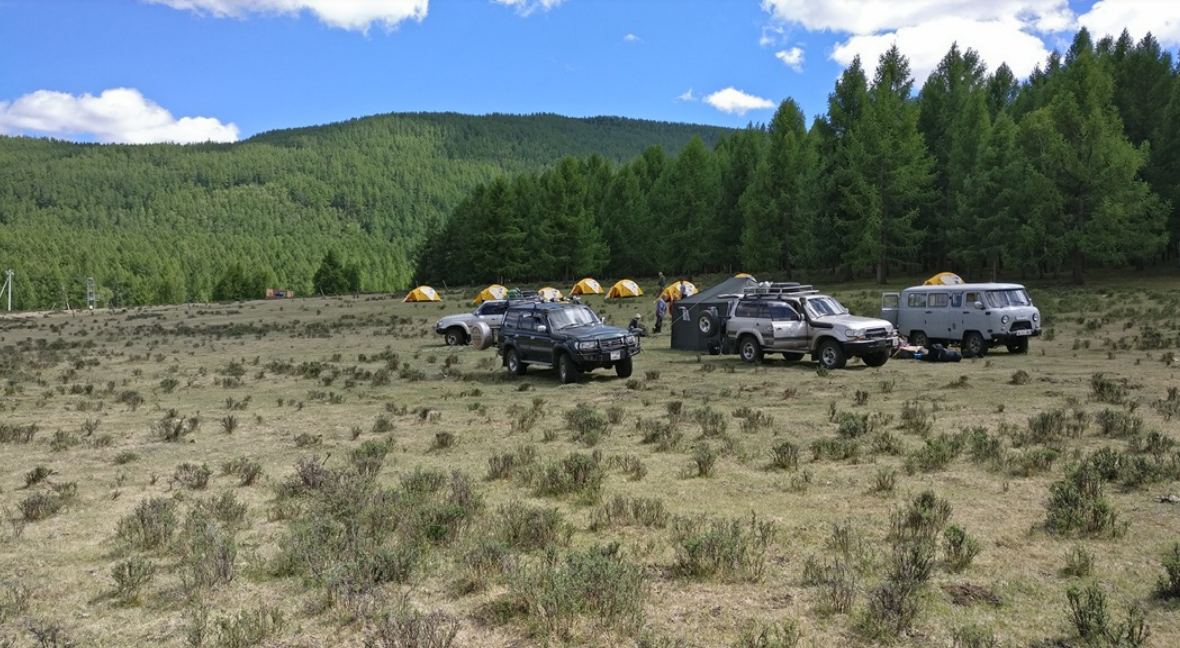
Camping at Terelj
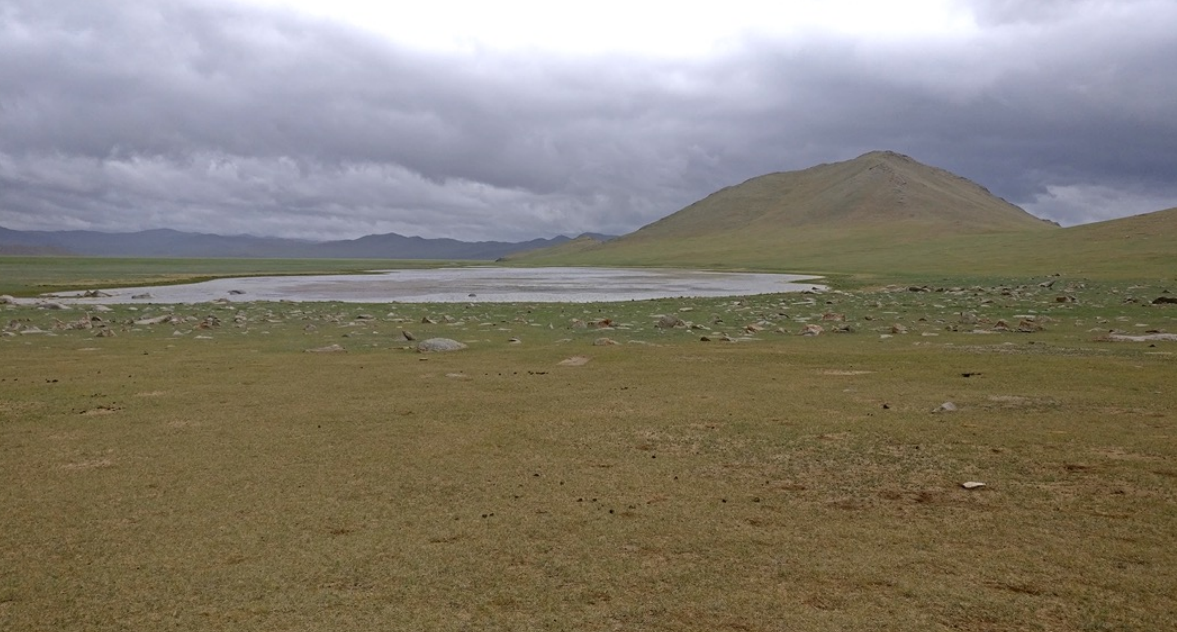
Khangai mountains
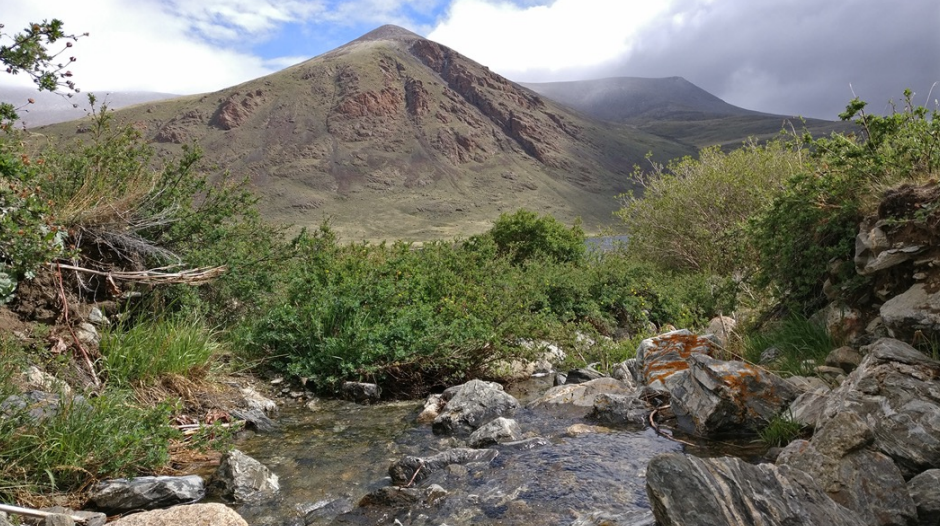
Khukh Lake, Khangai mountains
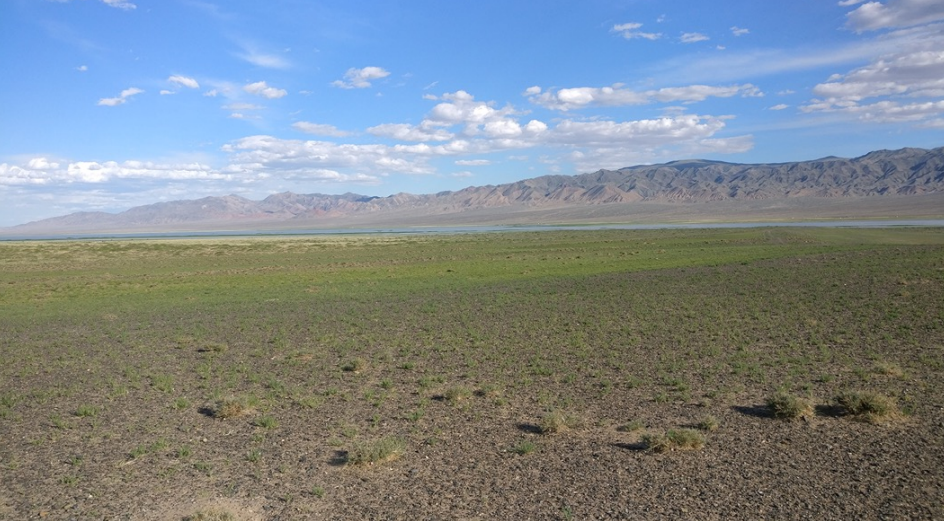
Steppe and Orog Lake
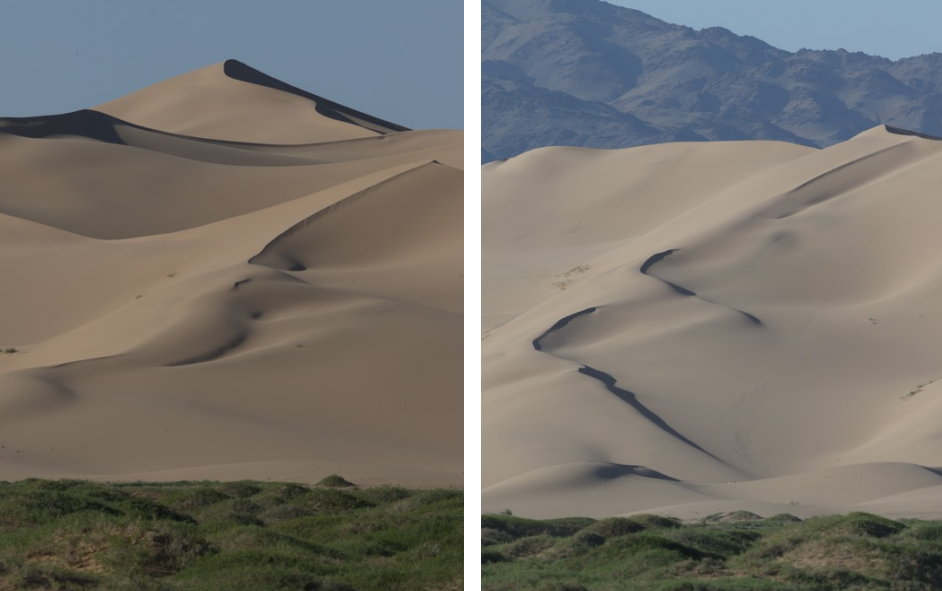
Khongoryn Els
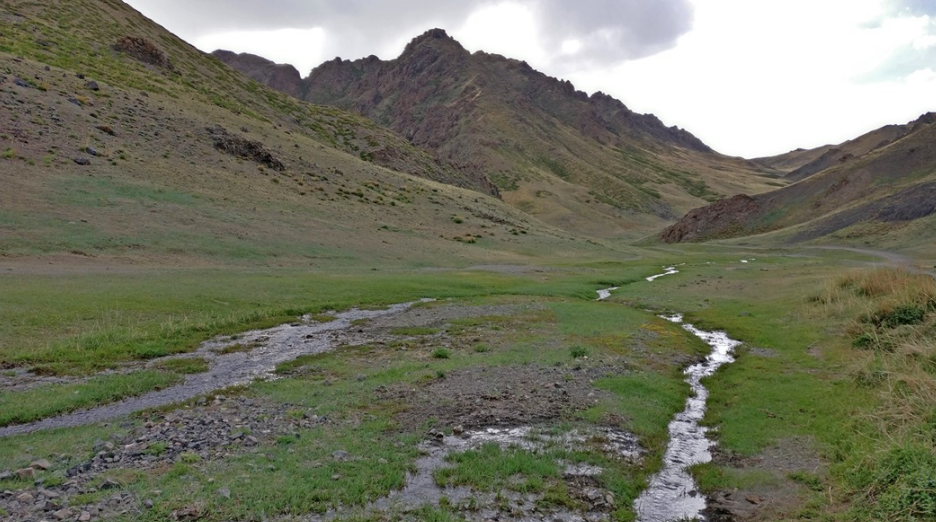
Yolyn Am
© 2025 Tum-Eco Tour Co.,Ltd. All right reserved. Developed by Mind Agency